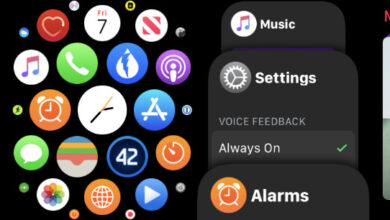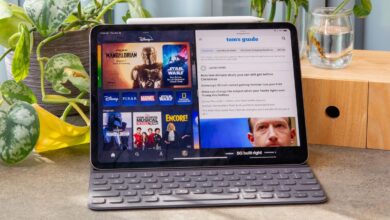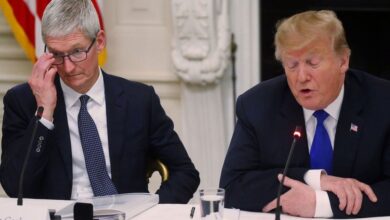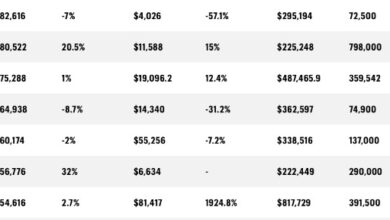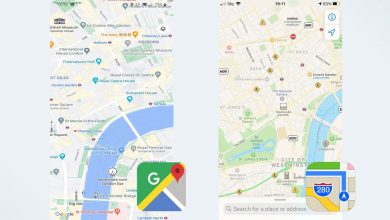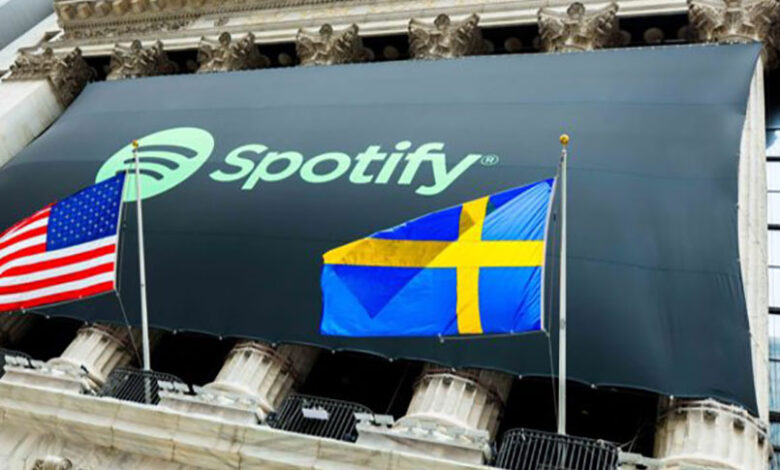
Apple has become the subject of many different antitrust investigations, looking into the iPhone maker’s activities relating to the App Store, Apple Pay, and other areas. Here’s the backstory on all of the recent and currently ongoing antitrust actions affecting Apple at the moment.
Accusations of antitrust behavior and the initiation of investigations into such matters can be a pain for many major tech companies, and as a big player in the industry, Apple has received its fair share of complaints. With potentially billions in fines and major changes in the way the company has to operate on the line if found to be in the wrong, Apple has to take the complaints extremely seriously.
While Apple’s main antitrust accusations relate to the App Store, it also has to deal with complaints in other areas of its empire.
Contents
What is Antitrust?
Generally speaking, antitrust relates to how big companies operate within a market, and if there are issues regarding competition. Antitrust laws are put in place to prevent any abuses of power by a company being big enough to effectively operate as a monopoly, and to encourage more competition between firms.
For example, antitrust laws help keep companies that seem to be a monopoly honest by operating fairly. While it would be easy for a big company to cut out others in an industry in a variety of ways, the laws instead seek to maintain the opportunity for smaller rivals to exist, and to potentially grow to a size where it could compete more effectively against larger incumbent companies.
Firms attempting to use their size and market power to control the entire market at the expense of rivals are usually probed by regulators, to determine if activities are fair and non-predatory. Companies found to be breaking antitrust laws face high penalties, giving them a considerable disincentive to continue their behavior.
To consumers, competition in the market is good as it can help create new services and improve existing offerings, as well as potentially driving prices down. Some laws also prevent conspiracies to fix prices between firms, artificially keeping prices high to extract more money from consumers, or artificially low to drive another rival out of the market.
Antitrust is about making the gorilla of a market play nicely with others.
Obviously, as Apple is a very large company and operates multiple storefronts and services, it has become subject to accusations that it is the metaphorical gorilla, and one that’s allegedly no saint.
App Store fees and limitations
The biggest area of Apple’s empire that has become the target of antitrust suits is the App Store, the main port of call for apps that aim to be installed on iPhones, iPads, and other Apple hardware. Any app that wants to be usable on an iPhone has to to have a listing in the App Store, and so has to abide by the App Store rules.
As part of the rules for existence in the ecosystem, a 30% cut of both app sales and in-app purchases is taken by Apple while the remainder is provided to the developer or publisher. While there are some exceptions to the rules, such as for subscriptions and specific types of app, the vast majority of apps have to deal with this charge.
While Google implements a similar fee structure for the Google Play Store on Android, it differs in that it is possible for an Android user to install apps independently from the Google Play Store, such as via a different storefront or side-loading the app. It is not possible for developers to undertake similar actions to bypass the store to avoid the charge on iOS.
Furthermore, companies are also forced into using Apple’s payment system for mobile purchases from the app. Though it is possible for an app to be used to facilitate a subscription or purchase made outside of the app, such as through a browser, and externally from Apple’s payment systems, purchases with limited exceptions must pass through Apple’s payment service.
Apple Music and Spotify
One of the longest-running antitrust complaints that is still under investigation by regulators is one from Spotify. The major music streaming service objects to the 30% fee, which Spotify founder and CEO Daniel Ek characterized as a tax, as it isn’t being implemented in a fair manner.
Spotify’s main argument is that Apple Music exists and can be subscribed to, but as Apple Music isn’t visibly subjected to the same App Store fee as Spotify, it can be offered to consumers at a comparatively lower cost to Apple than Spotify. While Spotify can be subscribed to directly via a browser away from the App Store, Spotify argues that the charge forces the firm to operate in an uneven playing-field, if it wants to offer subscriptions via the iOS app.
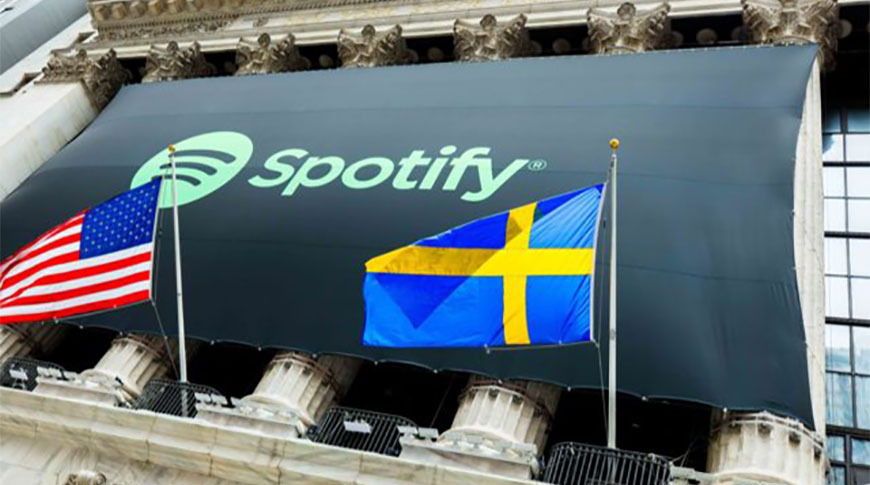
Spotify objected to how it had to pay the App Store fee, while Apple Music wasn’t largely affected.
Basically, if Spotify charges consumers at the same cost as Apple Music, it will earn a lower rate of revenue due to handing the 30% fee to Apple. If it increased prices so it earned the same amount of revenue as Apple would from Apple Music, but effectively handed the 30% charge over to consumers, this would make Spotify less attractive to a price-conscious audience.
In an official anti-competition complaint against Apple filed with the European Commission in March 2019, Ek complained “Apple is both the owner of the iOS platform and the App Store – and a competitor to services like Spotify. In theory, this is fine. But in Apple’s case, they continue to give themselves an unfair advantage at every turn.”
Spotify also believes that Apple Music has a further advantage due to Apple failing to provide enough access to core technologies for third-party firms, such as Siri, HomePod, and Apple Watch. Controlling the platforms means Apple is “artificially limiting innovation and constraining user choice by refusing to allow Spotify and other firms access to technology and information via the App Store.”
In May, the European Commission confirmed it was going to examine the complaint via a formal investigation into how the App Store policies allegedly hindered Apple Music’s competitors. The Commission warned the investigation could take years to complete.
FTC and DOJ ramped up antitrust monitoring
In June 2019, the Federal Trade Commission and the Department of Justice announced plans to enhance their monitoring of major tech firms, starting with Amazon and Google, for potential antitrust issues. The two government bodies would be dividing up competition oversight of tech firms, so as to minimize any clashing investigations.
The following month, the Department of Justice announced it was performing an antitrust review of Apple, alongside Amazon, Google, and Facebook. The review aimed to assess “the widespread concerns that consumers, businesses, and entrepreneurs have expressed about search, social media, and some retail services online.”

At the time, the details of the probe were not offered up, such as what elements of Apple’s organization were facing scrutiny. However, in August it was revealed the DoJ was consulting a group of state attorneys on the wide-ranging antitrust probe.
According to Assistant Attorney General for the Justice Department’s Antitrust Division Makan Delrahim at the time, previously approved acquisitions were being looked into to determine if they were the correct moves to make.
House Judiciary Committee steps in
By September 2019, the House Judiciary antitrust subcommittee stepped in to the investigations, sending requests for internal documentation and correspondence from the four tech companies. The letter to Apple revealed the extent of the probe’s reach.
The purpose of the committee’s probe was to examine “competition problems in digital markets,” whether dominant firms are “engaging in anti-competitive conduct online,” and if existing antitrust laws and policies “are adequate to address these issues.”
For Apple specifically, the committee was keen to investigate Apple’s so-called practice of “Sherlocking” third-party developers, as well as emails relating to Apple’s crackdown of parental control apps from earlier in 2019.
The App Store was also being targeted, with the committee asking for information about how Apple manages the App Store, its policy for third-party payment systems, revenue-sharing policies for in-app purchases, and whether or not users can choose non-Apple apps as default apps.
This information would be used to further the investigation by the committee, including a public showdown in 2020.
Apple Pay versus the European Commission
By October 2019, Apple was facing another antitrust investigation by European Union investigators, into Apple Pay. At the time, investigators were in talks with payment companies over how Apple’s treatment of Apple Pay with financial systems may have been anti-competitive.
Specifically, the commission was concerned about how Apple elected to limit the iPhone’s near-field communications chip to function only with Apple Pay for payments, with it effectively being impossible to use by third-party mobile payment firms. Banks and rival services claimed the restrictions made alternative payment systems less attractive to users.
Apple already had one run-in with a Swiss payment company, TWINT, in December 2018, narrowly avoiding a probe at the time by settling a complaint with the firm.
While Apple argued limiting access to the NFC chip provides tighter security for the sensitive banking data, EU competition commissioner Margrethe Vestager pointed to rival smartphone producers including Google and Samsung having not triggered a similar probe. The reason they weren’t under inspection was due to Android devices allowing apps and services to access the device’s NFC chip, if it is available.
Tile’s EU complaint
A letter of complaint from Tile was sent to the European Commission in May 2020, requesting an inquiry into allegedly anti-competitive practices. The location tracking hardware and software vendor alleged that Apple had made it intentionally difficult for users to actually use Tile’s products, as Apple prepared for the release of its rumored “AirTags.”
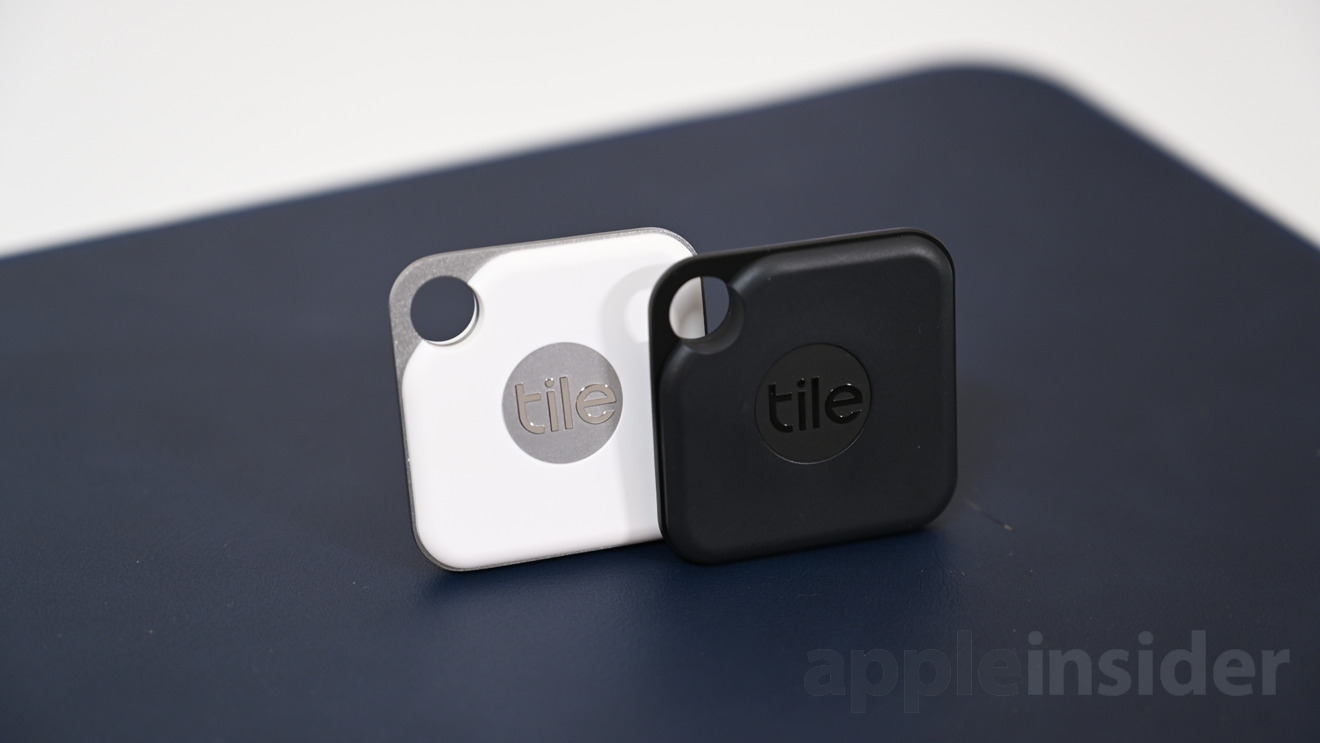
Tile claimed Apple was selectively disabling features from rival products ahead of the launch of ‘AirTags’
The claim included Apple allegedly disabling features for rival products over a 12-month period, such as by restricting access to built-in positioning hardware in iPhones and other products.
Apple strenuously denied the allegations, insisting the introduction of privacy protections that safeguarded user location data was consistent with ten years of earlier work. “Tile doesn’t like those decisions so instead of arguing the issue on its merits, they’ve instead decided to launch meritless attacks,” Apple said at the time.
$1.2B French fine
A lesser known about antitrust action, the French Competition Authority fined Apple and two local wholesalers over pricing practices it deemed to have been an antitrust violation. The fine of 1.1 billion euro ($1.22 billion) against Apple itself was considered a record-breaking amount, augmented by a further 139 million euros ($154 million) in total fines against the two wholesalers.
The watchdog claimed Apple and the wholesalers agreed “not to compete with each other, and to prevent distributors from competing with each other, thereby sterilizing the wholesale market for Apple products.”
An Apple spokesperson told AppleInsider at the time that the decision was “disheartening,” as it “relates to practices from over a decade ago and discards thirty years of legal precedent that all companies in France rely on with an order that will cause chaos for companies across all industries.”
In an annual report issued before the ruling was made, Apple had noted legal issues that could result in fines, including the activity with the French Competition Authority. “The Company vigorously disagrees with the allegations,” Apple wrote.
EU launches Apple Pay, App Store probes
By June 2020, the European Commission was ready to launch a pair of formal investigations into Apple, targeting the App Store and Apple Pay. The pair of investigations were said to carry a maximum fine of 10% of Apple’s annual revenue, a fine reaching to the billions.
Vestager, who became EU Executive Vice-President by that time, suggested “It appears that Apple sets the conditions on how Apple Pay should be used in merchants’ apps and websites. It also reserves the ‘tap and go’ functionality of iPhones to Apple Pay.” Vestager said it was important Apple’s measures “do not deny consumers the benefits of new payment technologies, including better choice, quality, innovation, and competitive prices.”
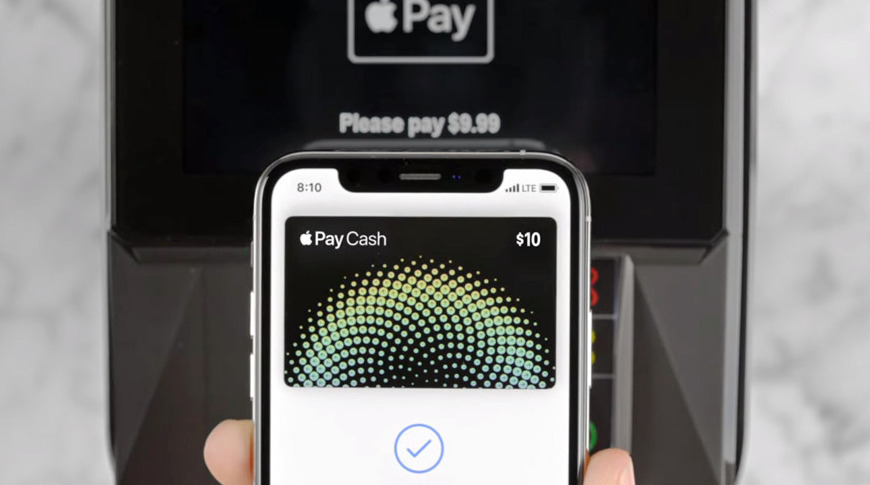
Apple Pay was the target of one of the EU’s probes.
For the App Store investigation, Vestager proposed Apple had created a “gatekeeper” role for itself in managing the “distribution of apps and content” to consumers. “We need to ensure that Apple’s rules do not distort competition in markets where Apple is competing with other app developers, for example with its music streaming service Apple Music or with Apple Books,” she continued.
Apple responded: “It is disappointing the European Commission is advancing baseless complaints from a handful of companies who simply want a free ride, and don’t want to play by the same rules as everyone else.”
It is thought the two probes could take years to complete.
Shortly after the EU announcement, Apple’s App Store chief in Europe Daniel Matray defended the company by likening the App Store to a “quality department store,” with Apple pouring a lot of investment and innovation into maintaining the App Store as a platform.
DoJ speaks to developers
In the same month as the EU’s investigation launched, the US Department of Justice was reportedly about to start its own one up. It was claimed the DoJ and a coalition of state attorneys general spoke to several companies who believed Apple was being anti-competitive, again with the main complaint being the 30% commission fee.
At the time of publication, an official announcement for an investigation has yet to be made.
Tim Cook’s House antitrust hearing testimony
Agreeing to testify to the U.S. House Antitrust Subcommittee on July 29, alongside the CEOs of Amazon, Google, and Facebook, Apple CEO Tim Cook told the subcommittee that Apple doesn’t participate in anticompetitive behavior, and that it does not “have a dominant market share in any market where we do business,” in prepared statements.
The lawmakers on the committee, of questionable usefulness in putting the CEO group to task, largely took the opportunity to question Amazon and Google, with Cook facing fewer questions in general.
During the testimony, Cook was asked what was stopping Apple from raising its fee to 50%, and responded that the company has never done that since the App Store opened. Asked about review guidelines and if Apple makes up rules and favors specific developers, Cook said Apple “treats every developer the same and has open and transparent rules.”
On the topic of retaliation and bullying developers going public with their App Store frustrations, Cook simply stated Apple hasn’t done that, adding it was “strongly against our company culture.”
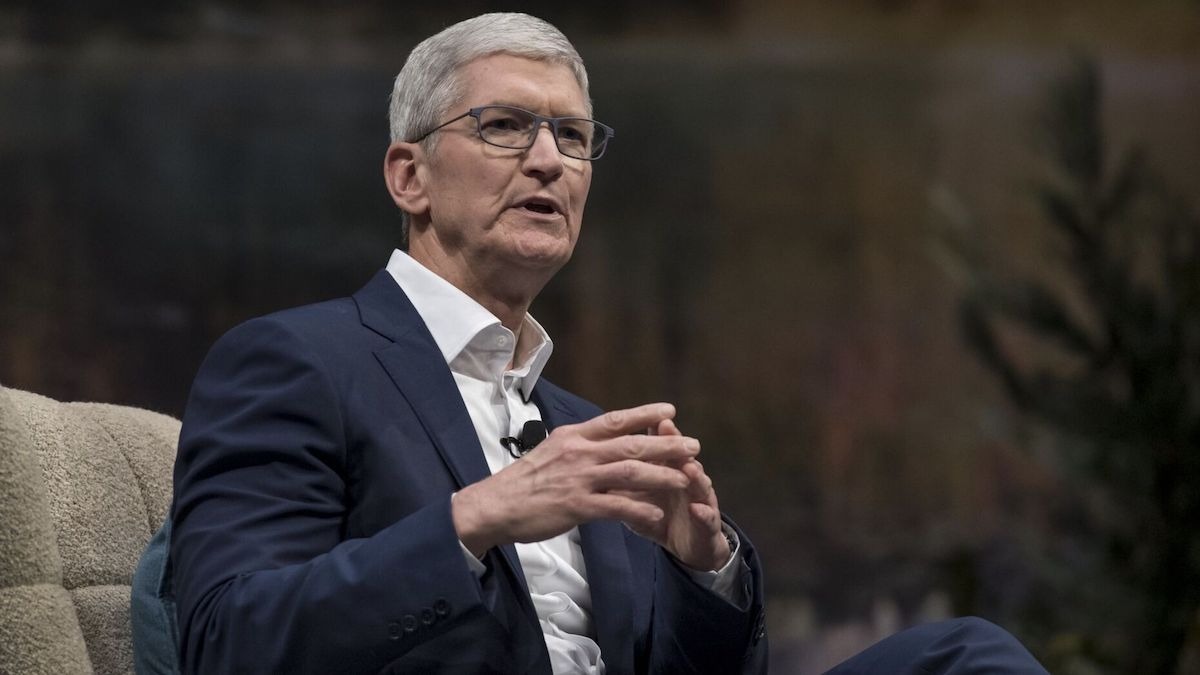
Apple CEO Tim Cook interviewed following the subcommittee testimony.
A query on why Cook removed parental control apps on the App Store was handled by Cook pointing out there were child data privacy concerns and issues with the use of mobile device management routines used by those applications. Cook denied it had anything to do with the release of Screen Time.
Apple was accused of preventing an app from Random House from appearing in the App Store in a bid to coerce the published into joining the iBooks platform. Cook said it was hard to see the issue in context as he didn’t have access to documents being referred to by the lawmaker at the time.
On whether Apple was “calling up” developers who switched business models and demanding Apple’s 15% to 30% cut, Cook insisted “we would never do that. A pandemic is a tragedy and it’s hurting Americans and people all around the world. We would never take advantage.”
Cook expressed the cases referred to was apps changing business models to use its digital service, which technically requires the use of its commission model.
As part of the testimony, it was revealed that Apple was prepared to adjust its fee, with enough encouragement. In a bid to get the Prime Video app on the App Store, Apple offered a 15% fee instead of 30% to Amazon.
Following the testimony in an interview, Cook also insisted that Apple didn’t buy companies to limit competition. Its acquisitions were to “buy companies where we have challenges, and IP, and then make them a feature of the phone.” Cook was not questioned during the testimony itself about any major acquisitions.
Major developers continued to rail against the App Store policies following the testimony, declaring the practices restrictive and unfair.
With the completion of testimony, the subcommittee will start a process of analysis to determine if antitrust law changes need to be made, before offering their recommendations in the coming months.
Epic, Fortnite, and 1984
On July 24, Epic Games CEO Tim Sweeney continued an ongoing grievance with smartphone app stores operated by Apple and Google, declaring them an “absolute monopoly” over the 30% transaction fees. Sweeney suggested “If every developer could accept their own payments and avoid the 30% tax by Apple and Google we could pass the savings along to all our consumers and players would get a better deal on items. And you’d have economic competition.”
Sweeney’s comments were weeks ahead of a quick series of activities that put the game “Fortnite” at the forefront of antitrust battles.
On August 13, Epic updated the iOS and Android versions of the game to include a “direct” payment option, one that offered in-app purchases at a discount compared to what would be paid for a transaction through the usual App Store mechanism. Apple swiftly pulled the app from the App Store within hours of the change.
Later that day, Epic sued Apple with a lengthy lawsuit, calling Apple’s conduct “anti-competitive” and attacking the 30% commission. The long length of the lawsuit document, the speed of the filing, and the release of a parody of Apple’s iconic “1984” commercial, suggests Epic was planning for the app’s removal in advance.
Google later followed suit in pulling the app, and was similarly sued.
Sweeney insists the private antitrust lawsuits is more about freedom than money. “At the most basic level, we’re fighting for the freedom of people who bought smartphones to install apps from sources of their choosing, the freedom for creators of apps to distribute them as they choose, and the freedom of both groups to do business directly,” said the CEO.
Sweeney’s comments ignore the fact that Epic operates its own online marketplace, and has actively worked to prevent some games from being sold via competitor Steam by securing exclusives to its own store.
